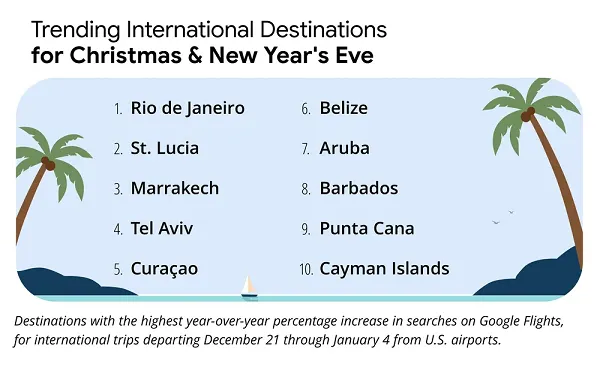The Results Are In: Most Marketers Prefer Remote Work — But It’s Not Perfect
How do marketers feel about remote work? Our surveys uncover some fascinating data about flexibility and provide a few tips along the way.

If you’re new to remote work or haven’t quite settled in, it can be shocking to realize that some people have been doing this for 20+ years. That’s just one more reason there’s a whole puzzle of opinions about working from home.
To put all those pieces together, we did a little digging. Between a Pollfish survey and insights from our very own Brafton marketers, we got the inside story on remote work from 136 people on the front lines.
Spoiler alert: Most folks are big fans, but nobody can deny a few hurdles along the way.
Here’s a breakdown of our survey results and what marketers, leaders and entire businesses can learn from the consensus on remote work.
What Do We Love About Remote Work?
Let’s start with the good news. Long story short, our respondents generally agreed that remote work created new opportunities and enriched aspects of the work world they were already enjoying. This aligns with the results of nationwide surveys — one of which found that nearly half of respondents wanted remote positions.
Here’s what our own research says:
Subscribe to
The Content Marketer
Get weekly insights, advice and opinions about all things digital marketing.
Thanks for subscribing! Keep an eye out for a Welcome email from us shortly. If you don’t see it come through, check your spam folder and mark the email as “not spam.”
Work-Life Balance
76% of respondents noted that remote work has improved their work-life balance. For context, Cambridge Dictionary defines work-life balance as “the amount of time you spend doing your job compared with the amount of time you spend with your family and doing things you enjoy.”

Work Flexibility
80.9% of marketers said they’d noticed improved flexibility in working location, and 79.4% said the same about working hours. These are particularly important numbers because they impact other areas, such as work-life balance.


Financial Health
67.6% of respondents said their financial health is better thanks to remote work. This one has a lot of variables, but research suggests fully remote employees can save up to $12,000 per year.

Mental Health and Well-Being
More than half of the survey group — 62.5% — mentioned better mental health and well-being as a result of working remotely. That’s no surprise, as organizations like the Association for Psychological Science and Mental Health America have pointed out how flexible work could enable psychological positivity, reduced stress and more.

Job Satisfaction
Would you be happier working in your pajamas all day? Maybe that’s why 61.8% of respondents said their job satisfaction has improved with remote options.

Productivity
58.8% of marketers said their productivity improved while working from home. Of course, the remote model is not without its distractions — but more on that later.

Other Benefits
According to our findings, folks love remote work for plenty of other reasons, including:
Improved career opportunities: 50.7%.Expanded networking: 44.1%.Better interdepartmental collaboration: 36%.Increased access to ideal working conditions: 60.3%.Stronger social life: 59.6%.What Do We Not Love About Remote Work?
While flexibility has its perks, remote work comes with some noteworthy downsides, as our surveys uncovered. Here’s what we found:

Communication and Collaboration
While many marketers noted that different departments were able to work together more effectively in a remote structure, others pointed out that there are still big challenges in this area. 58 respondents mentioned issues such as:
Different time zones.Inconsistent communication between on- and off-site employees.Lack of quick access for chats or questions.Increased meetings due to fewer collaborative opportunities.Unreasonable availability expectations, even outside of working hours.Productivity and Time Management
Another 58 people said that, while remote work creates productivity opportunities in some ways, it slows things down in others. For example:
Asymmetric access to information, making task allocation difficult.Difficult delegation across different teams and time zones.Lack of self-management skills.Trouble focusing.Unclear separation of work and personal life in terms of physical environments.Social and Emotional Impacts
Although a majority of marketers said mental health and well-being improve with remote work, 30 respondents brought up social and emotional issues. Their main concerns are:
Isolation from coworkers, including lack of face-to-face interactions and “water cooler chit-chats.”Lack of relationships that extend beyond work meetings.Reduced camaraderie and feeling like a team.Technology
We all knew it was going to be on the list: Around 5% of our respondents said that technology was a noteworthy stumbling block for remote work. Examples include:
Unreliable devices and internet connections.No access to IT department support.Network security risks.Key Takeaways: How To Make Remote Work Better
While it’s helpful to know how marketers really feel about remote work, all the data in the world doesn’t mean anything if you don’t act on it. Fortunately, the folks in our surveys had some solutions of their own — so here’s what you can learn from them:
Communicate Wisely
Respondents noted several good habits for remote collaboration, including:
Building better habits.Choosing appropriate communication tools and channels.Scheduling regular check-ins.Being proactive about answering questions and updating coworkers on availability.Making an effort to stay in touch with colleagues.Manage Your Time
Time management is important at all levels of a business — especially in marketing, where turnaround times are often “right now.” Here’s how our respondents have handled the fast-paced remote environment:
Creating to-do lists, schedules and plans.Setting work goals.Communicating work schedules to family members.Using project management tools to clarify responsibilities and tasks.Setting calendar blocks for lunch breaks, focus time and more.Remembering to disconnect from work at the end of the day.Improve Personal Habits
That’s just one example of how remote workers can come together to improve personal habits. Our respondents noted other possibilities, including:
Pausing notifications on weekends.Trying new things, like morning yoga or impromptu outdoor walks.Getting daily exercise.Engaging in self-care.Finding a quiet place to work or closing the office door.When working from home, it’s even more important to find that healthy work-life balance. At Brafton, our very own Lauren Perrodin initiated a weekly Wellness Challenge to help colleagues manage their health and well-being.
A Good Reminder for Savvy Marketers
Whether you already work from home or are planning on it, you should know how your industry peers feel about the whole situation. Maybe you can learn a thing or 2 from them — or maybe you can share some of your own techniques and tricks.
Regardless, the takeaway is simple: Research says that remote work has earned a thumbs-up — but, as with everything, there’s always room for improvement.

 Konoly
Konoly 










_2.jpg)

![The 8 Best Free Flowchart Templates [+ Examples]](https://blog.hubspot.com/hubfs/flowchart%20templates.jpg#keepProtocol)



















